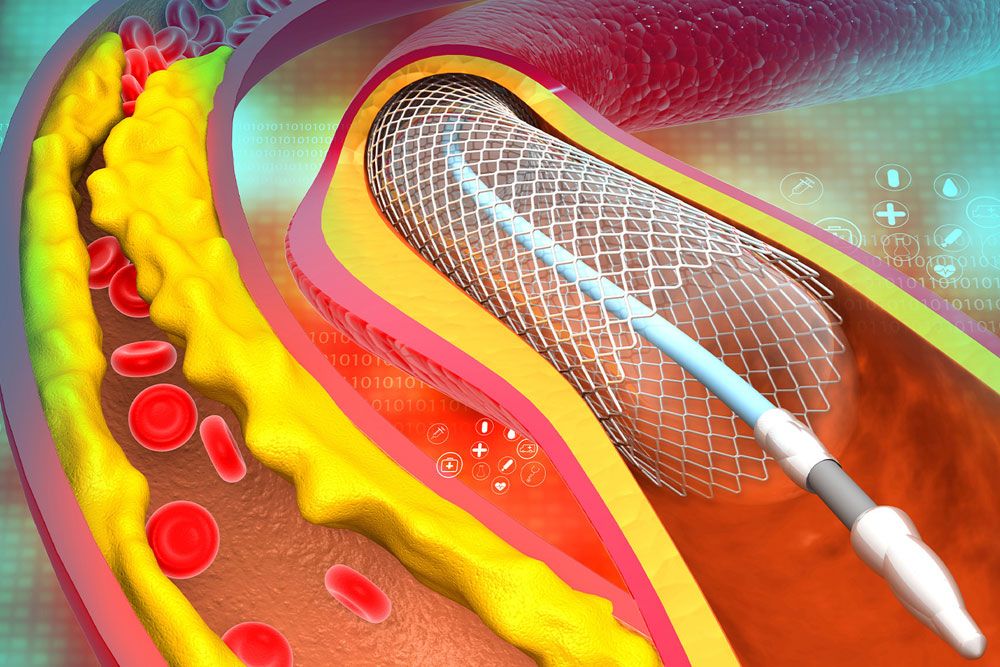Percutaneous Coronary Intervention (PCI), commonly known as angioplasty, is a minimally invasive procedure to open narrowed or blocked coronary arteries. This procedure improves blood flow to the heart, alleviating symptoms of coronary artery disease and reducing the risk of heart attacks. At Florida Cardiology Associates LLC, we offer advanced PCI services at our clinics at Heart and Rhythm Institute, Cardiovascular Institute of Trinity, HCA Florida Trinity Hospital, and Morton Plant Northbay Hospital, Florida, ensuring effective treatment and improved heart health.
Recognizing Symptoms That May Require PCI
PCI may be recommended if you experience symptoms of coronary artery disease. Common symptoms include:
- Chest pain or discomfort (angina)
- Shortness of breath
- Fatigue with exertion
- Pain in the arms, neck, jaw, or back
- Nausea or lightheadedness
- Unexplained sweating
The Importance of Percutaneous Coronary Intervention
Percutaneous Coronary Intervention is crucial for patients with significant coronary artery disease. This procedure helps to restore proper blood flow to the heart muscle, relieving symptoms and improving overall cardiac function. By directly addressing blockages in the arteries, PCI can prevent the progression of coronary artery disease and reduce the risk of serious complications such as heart attacks.
Early intervention with PCI can significantly enhance a patient’s quality of life by alleviating symptoms and allowing for greater physical activity. Additionally, PCI can be a life-saving procedure during emergencies, such as a heart attack, by promptly restoring blood flow and minimizing heart damage.
The PCI Treatment Process
Our PCI treatment process is designed to be thorough and patient-focused. The steps involved include:
- Initial Consultation: Your cardiologist will review your medical history, discuss your symptoms, and determine if PCI suits you.
- Preparation: You will receive specific instructions for the procedure, including fasting and medication adjustments.
- Catheter Insertion: After administering a local anesthetic, a catheter will be inserted through a blood vessel in your wrist or groin and guided to the affected coronary artery.
- Balloon Angioplasty: A small balloon inflated at the tip of the catheter widens the narrowed artery, restoring blood flow.
- Stent Placement: In many cases, a stent (a small mesh tube) is placed in the artery to keep it open and prevent future blockages.
- Recovery: You will be monitored for a few hours after the procedure. Most patients can go home the same day or the next day.
Preventing Coronary Artery Disease
Preventative measures are essential for maintaining heart health and reducing the risk of coronary artery disease. Adopting a heart-healthy lifestyle, including a balanced diet, regular exercise, and avoiding smoking, is crucial. Managing stress and maintaining a healthy weight are also important for cardiovascular health.
Regular medical check-ups and screenings are vital for early detection of potential issues. By staying proactive with your heart health, you can significantly reduce the risk of developing severe cardiovascular conditions and maintain overall well-being.
Positive Outcomes for PCI Patients
Patients who undergo PCI generally have a positive outlook for managing and treating coronary artery disease. This procedure provides immediate relief from symptoms and significantly improves heart function. At Florida Cardiology Associates LLC, we are committed to supporting your heart health through advanced treatments and personalized care.
By following the guidance of our experienced cardiologists, patients can effectively manage their heart health, enhance their quality of life, and reduce the risk of future heart problems. We aim to provide all our patients the best possible care and support.
Frequently Asked Questions (FAQs)
- Is PCI a major surgery?
No, PCI is a minimally invasive procedure and not considered major surgery. It involves a small incision and typically has a quick recovery time. - How long does the PCI procedure take?
The procedure usually takes about 30 minutes to an hour, depending on the complexity of the blockage. - Will I be awake during PCI?
Yes, you will be awake but given a local anesthetic to numb the insertion site. Sedation may also be used to help you relax. - How soon can I resume normal activities after PCI?
Most patients can resume normal activities within a few days, but your cardiologist will provide specific guidelines based on your condition. - Are there any risks associated with PCI?
Like any medical procedure, PCI has some risks but is generally low. Your cardiologist will discuss these risks with you before the procedure.
Take Charge of Your Heart Health with PCI
Scheduling a PCI is a proactive step toward maintaining and improving your heart health. At Florida Cardiology Associates LLC, we are dedicated to providing comprehensive cardiovascular care with the latest diagnostic and treatment technology. Our team is here to guide you through the process and ensure you receive the highest quality of care.
Don’t wait for symptoms to worsen. Early detection and treatment are key to preventing serious heart conditions. Contact us today to book your PCI consultation and take the first step toward a healthier heart.




